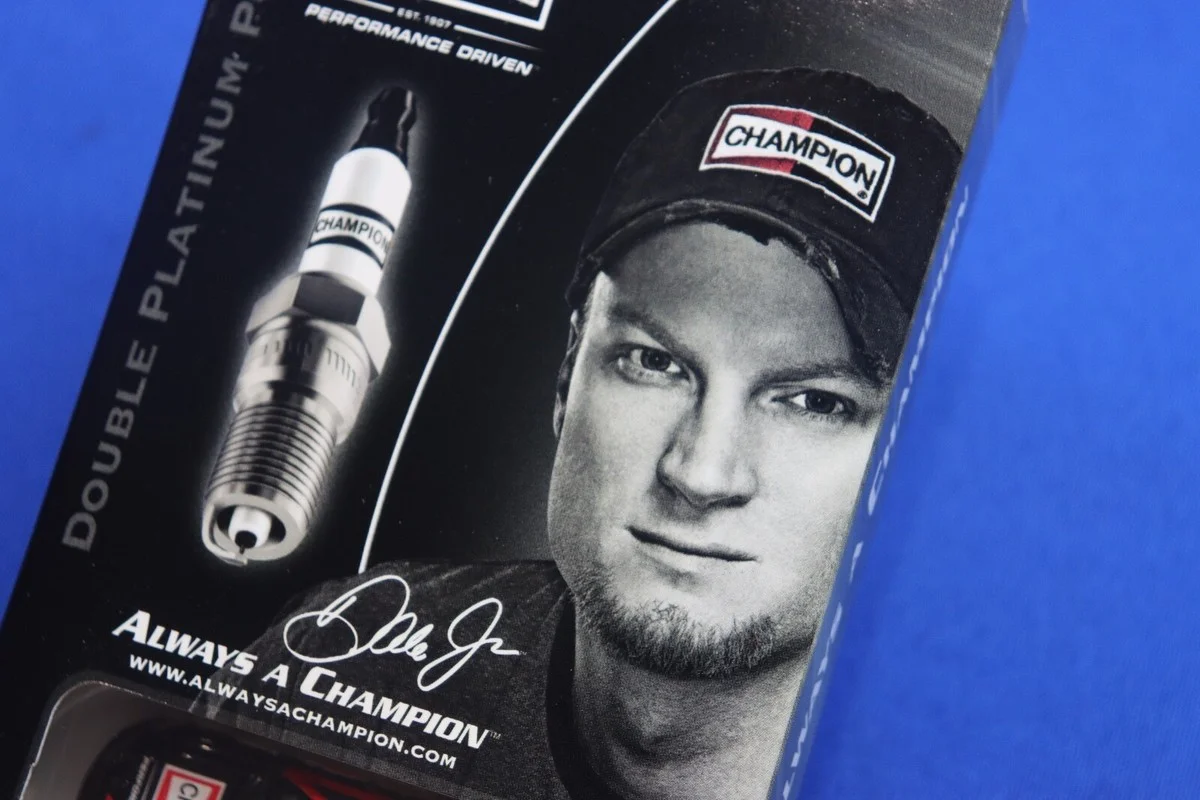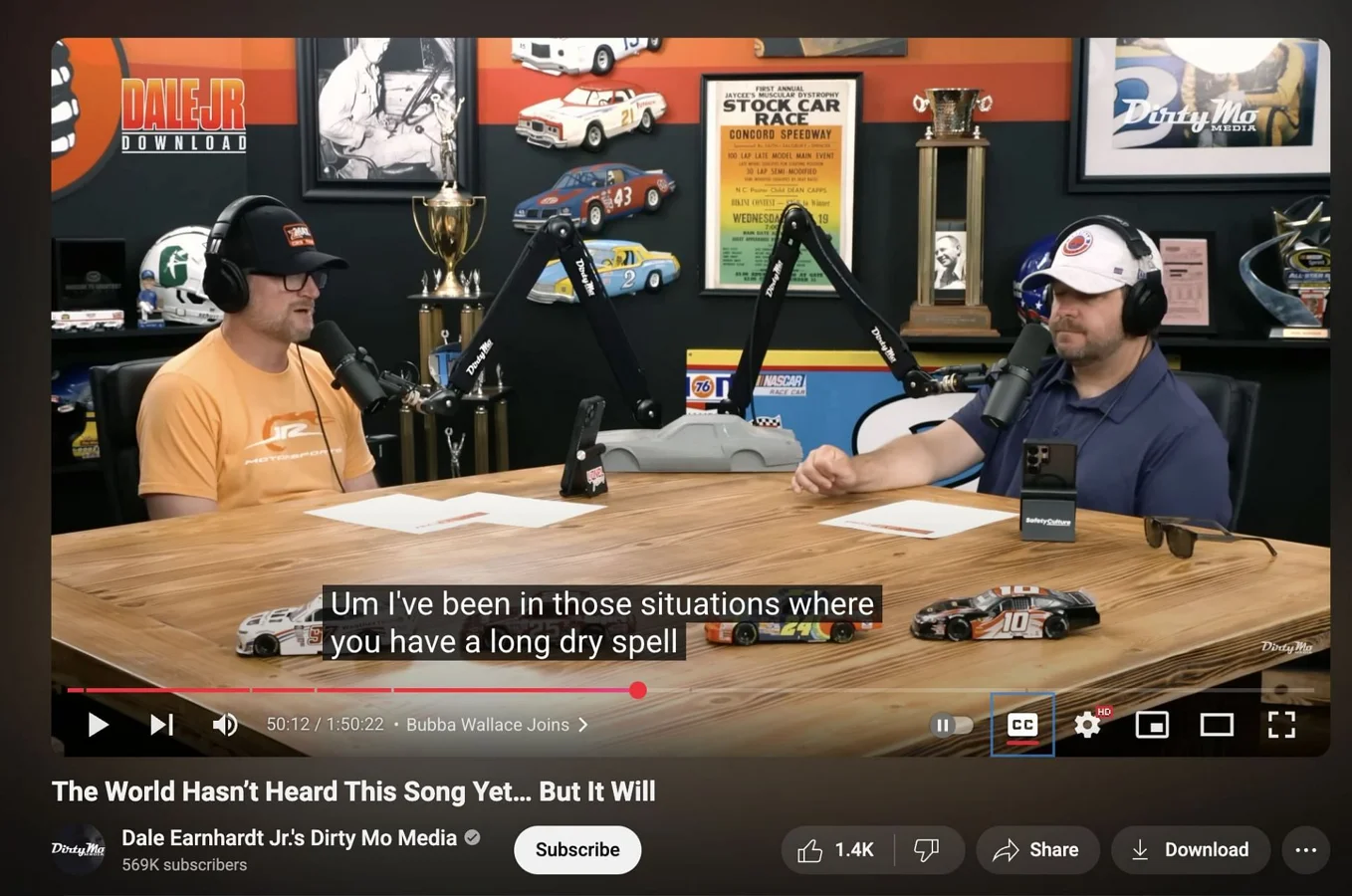Denny Hamlin and Dale Earnhardt Jr. recently expressed their concerns over the lack of tire falloff at Iowa Speedway, criticizing NASCAR and Goodyear for creating conditions that minimized passing and altered race strategy. The Dale Earnhardt Jr. tire falloff discussion has drawn attention to how race dynamics are being shaped by tire selection.
Hamlin’s Disappointment with Iowa Speedway Tire Choice
During the recent event at Iowa Speedway, Denny Hamlin started just outside the top ten and maintained a steady pace before repeated cautions disrupted the field. His fortunes took a downturn when a four-wide scramble after a restart resulted in contact, causing Hamlin to spin and finish 24th. The race itself was halted twelve times for cautions, with the field slowed for 72 laps. William Byron, running out front, ultimately chose to push his fuel window to secure victory, highlighting a prevailing trend where teams favor fuel conservation over tire changes due to minimal tire degradation.
Hamlin believes that Goodyear missed a crucial opportunity for more competitive racing by selecting a tire compound that barely wore out. Without significant tire wear, teams can focus on stretching fuel runs, reducing the need for pit strategies based on new tires, and leading to less variability in performance throughout the field.

“When the leader catches the 30th place car, it just takes him forever to work them over because there’s not enough difference in speed from that car to that car. And then when you look at the course of the run, I sent Dale Jr a screenshot of this on Saturday night and I said, ‘Can you believe that we tire tested here,….and this is the tire that they came up with, is the one that had zero fall off after 50 laps,’” he said via Youtube/Actions Detrimental. [ 8:40 onwards]
“How in the world do you expect us to put on a good race when everyone’s going to run the same speed,” he added.
Hamlin’s remarks highlight the challenge for NASCAR and Goodyear to produce a tire that encourages more passing and dynamic racing. The minimal tire falloff at Iowa Speedway led to long green-flag runs with little difference in lap times, locking in track positions and reducing opportunities for dramatic changes during the race.
Dale Earnhardt Jr. Draws Parallels with Bubba Wallace’s Winless Streak
On his podcast, Dale Jr. Download, Dale Earnhardt Jr. shared his own experiences coping with fan criticism and prolonged winless stretches, relating to the scrutiny Bubba Wallace has faced over his 100-race drought. Earnhardt recounted how quickly perceptions change when results falter, shedding light on the emotional and mental challenges faced by drivers in the spotlight.
“I’ve been in those situations where you have a long dry spell and everybody’s talking sh*t, and that’s when people think you’re overrated. They come out and they’re all like, ‘Yep, see he’s overrated, man, and he’s getting all this attention,’” Dale Earnhardt Jr. said. [50:09 onwards]
Earnhardt’s own winless spell stretched from 2008 until his victory at Michigan International Speedway in 2012, a period spanning 143 races. Despite the lengthy drought, he persisted for several more years in the NASCAR Cup Series before retiring from full-time racing, underscoring the endurance required of top-level drivers during challenging periods.
Looking Ahead to Watkins Glen
Following the Iowa event, the NASCAR schedule now moves on to Watkins Glen International, a road course where Denny Hamlin came close to winning in 2023, having started from pole but managing to lead only a few laps. The focus on race strategy and tire performance is likely to remain central as teams adapt to different track demands, and drivers await opportunities to capitalize on any competitive edge.
The ongoing dialogue about tire falloff, racing quality, and the impact of criticism on top drivers like Dale Earnhardt Jr. and Bubba Wallace reflects the broader tensions within NASCAR as it seeks to balance competition, fan interest, and technological decisions. As the season continues, the outcome of these discussions may influence future decisions regarding tire choices and race formats.
